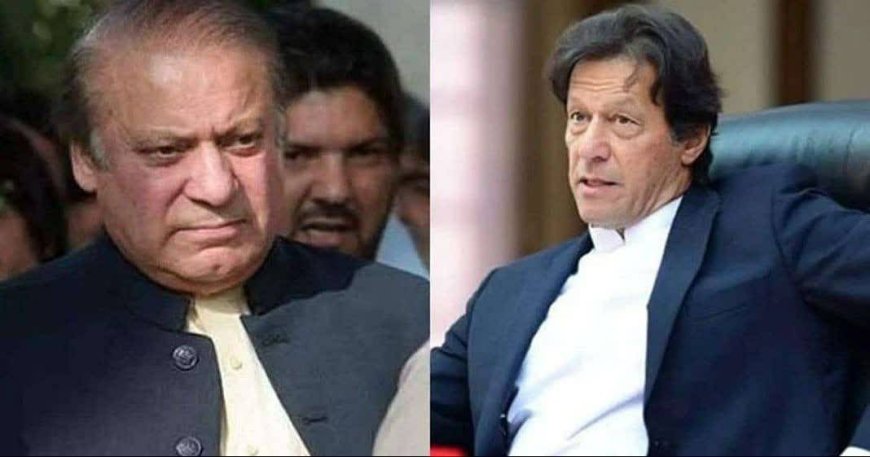Sharif vs. Khan: A Battle for Pakistan's Future
In the forthcoming days, Pakistan will experience one of its most pivotal elections in its modern history. The two primary contenders vying for leadership are Nawaz Sharif, the incumbent Prime Minister, and Imran Khan, the former Premier.

Pakistan, plagued by persistent instability in recent months, has grappled with numerous challenges under Sharif's administration since Khan's ousting. Consequently, this election assumes paramount significance for the trajectory of Pakistan's future.
Khan's tumultuous tenure witnessed a profound division within Pakistani society. In addition to the prevailing economic woes that have beset the Asian nation, social problems have also compounded over time. Pakistan's power structure traditionally rests on two pillars: the formidable and influential intelligence apparatus known as ISI, which serves as a crucial decision-making body, and the military, which wields significant authority.
Today, Pakistan faces the pressing task of navigating foreign and international policies, necessitating a choice between aligning with the deposed Imran Khan-led government's close ties with Beijing and Moscow or pursuing a different course favored by western powers.
Khan's administration encountered a series of formidable challenges, culminating in a quasi-coup d'état orchestrated by the military and the country's security establishment. Consequently, the faction opposing close relations with Russia and China seized control of the government. Despite being embroiled in a court case, Nawaz Sharif was disqualified from assuming power by the nation's judicial system. Similarly, Khan also encountered imprisonment. However, both adversaries are now eligible to participate in the upcoming election.
However, the Election Commission of Pakistan has affirmed Imran Khan's eligibility to contest the 2024 elections, setting the stage for a campaign showdown between Sharif and Khan in the days to come.
Fundamentally, Pakistan's society, imbued with a historical rivalry with India, strives to fortify itself against its neighbor and achieve the objective of enhancing Pakistan's standing vis-à-vis New Delhi. This aspiration unifies governments of all ideological persuasions in Pakistan, rendering political affiliations moot.
In the meantime, the intervention of major global powers in Pakistan is an acknowledged reality, as the nation, in the present era, cannot grapple with its internal challenges without the assistance of such powers.
The International Monetary Fund (IMF), acting as an instrument of Western nations, exerts influence on Pakistan, where it has periodically enforced destructive financial policies, enabling Western powers to wield sway over the incumbent government. Eastern powers, too, have consolidated their influence within Pakistan through foreign investments. In the absence of substantial Chinese investments, numerous economic plans within the country lie paralyzed. Such factors play a pivotal role in shaping the choices presented to Pakistani society by both the Eastern and Western axes. Both sides employ propaganda to attract Pakistani citizens to their agendas.
Traditionally, Pakistan's military enjoys a significant following in the United States, with Washington favoring the military over civilian administrations in Pakistan in a bid to bolster the military's clout. Concurrently, civilian governments in Pakistan endeavor to strike a delicate balance in their political relationships with the West while seeking closer ties with the Eastern axis, thereby acquiring a counterweight against India. Thus, the forthcoming decade will be instrumental in determining Pakistan's role on the global stage. Should Imran Khan's civilian government ascend to power, a thorough cleansing of the country's military establishment will ensue, as Khan assumes responsibility for stability and the nation's future. This would mitigate the precarious state of affairs that currently prevails in Pakistan.
In conclusion, as Pakistan embarks on this critical electoral process, the nation teeters on the precipice of a pivotal juncture. The outcome of these elections will indubitably shape the nation's trajectory, determining whether it will traverse a path governed by the military or one led by an empowered civilian government.













































